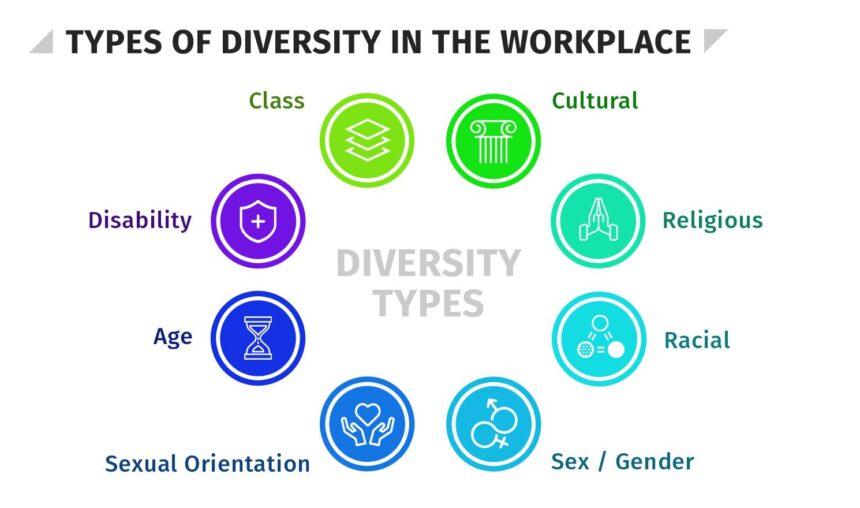Rethinking Diversity Initiatives: A Comprehensive Look at Merit and Inclusion
In a recent statement, former President Donald Trump asserted that diversity programs within organizations and educational institutions detract from meritocracy, suggesting they favor identity over ability. This controversial claim has reignited discussions about affirmative action and the significance of diversity in creating fair environments. However, extensive research and empirical data present a strong counter-argument, demonstrating that diversity not only enriches workplaces and academic settings but also boosts performance, innovation, and decision-making processes. As dialogues around diversity initiatives progress, it is essential to explore findings that challenge the idea of merit as an exclusively individual endeavor while emphasizing the systemic advantages diverse perspectives offer.
Trump’s View on Diversity Initiatives: A Misguided Understanding of Merit
The belief that diversity initiatives undermine meritocracy reflects a misunderstanding of a multifaceted issue. Research consistently indicates that integrating varied perspectives enhances problem-solving capabilities and drives innovation. A workforce characterized by diversity mirrors a wider array of experiences and viewpoints, leading to more effective decision-making processes and improved organizational outcomes. Disregarding this evidence risks perpetuating an overly narrow definition of merit that often overlooks the contributions stemming from different backgrounds.
Furthermore, merit itself is not an absolute concept; it is influenced by environmental factors and opportunities available to individuals. Elements such as systemic bias and unequal access to resources have historically distorted opportunities for many capable individuals. By fostering inclusivity through diverse initiatives, organizations can create equitable conditions where true merit can be acknowledged and cultivated. The advantages of embracing diversity extend beyond enhanced performance—they also promote greater creativity, higher employee satisfaction levels, and resilience in adapting to market fluctuations.
Exploring Research: How Diversity Fosters Meritocracy & Creativity
Recent studies reveal compelling insights into how diversity intersects with innovation across various sectors. Evidence consistently shows that teams composed of diverse members outperform their homogeneous counterparts, particularly regarding problem-solving abilities, creativity levels, and overall effectiveness. For example, companies with more varied workforces are significantly more likely to see revenue growth driven by innovative solutions, which cater to a broader spectrum of market demands. These findings challenge the notion that prioritizing merit excludes recognizing the benefits derived from diverse contributions; instead they suggest inclusion creates an environment where optimal ideas flourish regardless of contributors’ backgrounds.
A comprehensive analysis reveals several key benefits associated with team diversity:
- Catalyzed Creativity: Varied perspectives lead to richer brainstorming sessions resulting in innovative concepts.
- Adept Problem-Solving: Teams enriched with different experiences tackle challenges from multiple angles for superior solutions.
- Diverse Market Engagement: Understanding varied customer bases enables organizations to tailor products effectively.
The fast-paced nature of today’s world means adaptability fostered by diverse teams is not merely ethical but strategically advantageous as well. By interweaving distinct narratives alongside skill sets within their ranks, organizations become better equipped to navigate complexities while seizing opportunities unavailable through singular viewpoints alone.
Strategies for Integrating Diversity with Merit in Workplaces Moving Forward
Tackling how best to balance between implementing diversity initiatives while maintaining focus on merit-based hiring requires organizations adopt several effective strategies promoting inclusivity without compromising talent recognition or qualifications integrity:
- Total Evaluations:Create assessments focusing less on quantitative metrics alone but rather encompassing personal journeys alongside achievements aligned with core organizational values.
- Semi-Structured Interviews: strong >Implement standardized questions coupled with scoring systems during interviews aimed at minimizing biases ensuring all candidates undergo consistent evaluations based upon established criteria . li >
< li >< strong >Awareness Training : strong >Provide training programs designed specifically towards raising consciousness regarding unconscious biases among hiring teams encouraging them recognize potential prejudices overshadowing candidate merits . li >
ul >p > Additionally , cultivating environments conducive towards nurturing talents across various backgrounds remains crucial . Companies should prioritize :
< ul >
li >< strong >Mentorship Opportunities : strong >Develop mentorship frameworks connecting employees hailing from differing backgrounds directly leaders within organization aiding career progression navigation .
li >< strong >Inclusive Atmosphere : strong >Encourage workplace cultures valuing every perspective fostering collaboration ultimately leading greater innovations collective problem solving efforts .
li >< strong >Ongoing Evaluations : strong >Conduct regular reviews assessing impacts stemming out these diversifying efforts both workplace culture business outcomes ensuring necessary adjustments made when required .
/ ul >Final Thoughts on Diversity’s Role in Society’s Progression
The argument presented by former President Donald Trump claiming that embracing diversification undermines principles surrounding meritorious achievement stands countered by substantial research indicating otherwise . Studies repeatedly affirm diversified workplaces educational settings enhance creative output drive innovative thinking improve decision making capabilities overall . Rather than detracting value associated merits , these inclusive practices often serve level playing field allowing equitable assessments talent potential emerge unimpededly . As discourse surrounding issues related diversifying continues evolve , it becomes imperative policymakers educators business leaders acknowledge wealth evidence underscoring importance inclusivity commitment strengthening individual entities simultaneously contributing resilient dynamic society collectively moving forward together .









